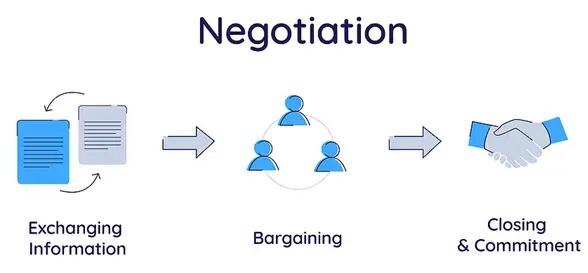"No" Masterstroke

We've all experienced the frustration of a negotiation stuck in mud. You give your everything, yet the opposing side only digs deeper. What is the secret weapon that elite negotiators use to change the tide? It's not about raw force or manipulation; it's about making a stunning linguistic shift: abandoning the "yes" and embracing the power of "no."
Think about it. A "yes" question is like a loaded rifle. It elicits an instinctive defensive reflex, raising suspicions of hidden objectives. It puts the opposing side on alert, ready to repel any sales pitch. What about a "no" question? It throws them off balance. It's disarming, even enticing. It feels like an open door, and there is a real curiosity in their point of view. This is the magic that famous negotiators use.
Rather of asking questions you already know the answers to, concentrate on demonstrating comprehension and creating a collaborative and welcoming environment. To do so, modify the structure of any "yes" questions you feel compelled to ask in order to grant your counterpart the "right to veto." Consider the following examples.
Is that correct?(Yes-oriented): Did I miss anything?(No-oriented)
Do I have that right?(Yes-oriented) -Am I incorrect in saying X?(No-oriented)
This little alteration can have a significant impact. No-oriented questions allow your counterpart to express themselves and offer them a sense of control.
This method of framing a question also allows for revision. Admitting error allows people to tell you exactly where and how you went wrong. People enjoy correcting others, and no-oriented questions allow them to gratify their natural instincts. They also inspire openness, participation, and collaboration (which will help you gain buy-in).
Before you engage into a negotiation, understand the power of "no" and how to use it to your benefit. If you're willing to pay attention, you'll find innumerable low-stakes practice chances to apply these abilities in your everyday life.
Remember that the most powerful negotiators manage the conversation rather than controlling it. They use the word "no" not to shut down, but to pave the way for a mutually beneficial agreement. So, the next time you're at the negotiating table, embrace the word "no." It might well be the key to unlocking the "yes" you've been looking for.
Bonus: Research indicates that negotiators who ask "no" questions are 18% more likely to secure collaborative agreements. So, arm yourself with this psychological tool and watch even the most adamant opponents come around to your side.